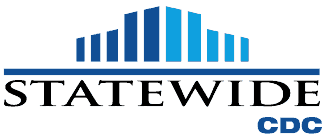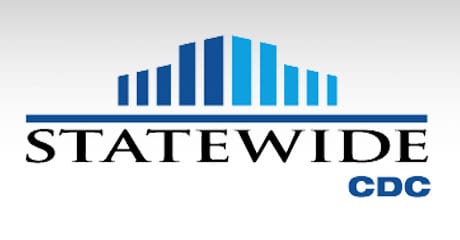RENTING
VS
OWNING
Considering what's right for you.
One of the biggest decisions a business owner can face is whether to lease or own the building. When financially feasible for the business it is generally a more advantageous to own the building. Nevertheless, there are pros and cons to be considered for either option.
Pros of Renting/Leasing
Preserve Early Working Capital: You tie up significantly less of your cash because you don’t need to make a down payment to move into the space. However, you should expect to pay upfront fees for an attorney, broker, prelease inspection and security deposit.
Outsourced Property Management: Leasing a commercial property generally means the landlord is responsible the tasks associated with property management.
Tax Benefits: When leasing, you generally won’t have to pay for any significant maintenance, repairs or upkeep to the property, which can amount to huge unforeseen costs (though you may be expected to pay for minor repairs). Instead, you’ll know exactly what you need to pay each month.
Location Options: Leasing a property may help you locate your business in a prime or strategic location that may not be possible to afford otherwise. You can also move on to a new property when your lease ends.
Credit Difficulty: There are many factors that make it difficult in obtaining financing for a business loan including having a poor credit score, low annual revenue or simply being a start-up. With these scenarios, it may be more cost-effective and easier to lease until the credit situation can be improved.
Cons for Renting
No Building Equity: With leasing, each month you’re paying someone else’s mortgage and property taxes.
No Appreciation: With leasing, the landlord is benefiting from the appreciation of the value of the real estate asset while you pay for it with higher rent each year.
No Monthly Income Stream: If you don’t own the property, you miss out on monthly renter or tenant income that can help offset monthly expenses.
No Tax Benefits: You cannot deduct property taxes and interest expenses for a lease.
No Control: Although a commercial property lease can be carefully structured to provide some tenant control; the higher power goes to the property owner.
No Fixed-Costs: Commercial property leases generally include a fixed annual percentage increase in rent, and depending on the type of lease, a variable common maintenance bill controlled by the landlord.
Pros for Owning
Building Equity: Owning your own building provides you with the opportunity to build equity. You can then leverage that equity to expand your business, use it to fund another business venture or simply secure your financial future.
Appreciating Value: Commercial real estate typically appreciates in value over time, which can be very beneficial for supporting business growth and for retirement.
Generating New Income: Owning allows you to generate new income and cash flow by leasing out part of the building to tenants. Remember that you must continually occupy at least 51% of the building space to qualify, and this tenant income cannot be included in your business cash flow for loan approval; however tenant income can often cover a large percentage of the loan payment.
Tax Benefits: There are plenty of tax benefits to owning your own property including: deducting property mortgage interest and property taxes; writing off improvements and renovations to the property; and writing off costs of leasing or renting property equipment.
Control: Owning property allows you to manage all aspects of your investment. Whether you want to expand or reconfigure the property, you don’t have to worry about negotiating with a landlord.
Fixed Costs: When you own your own property using a fixed-rate SBA 504 loan, you know what you’ll pay each month without worrying about a landlord raising the rent when your lease ends.
Cons for Owning
Larger Initial Cash Outlay: While a commercial property lease will generally limit your initial cash expense to a security deposit and first month’s rent; buying requires the upfront cash for the down payment and loan fees. The SBA 504 mitigates the larger cash required for a loan with a low down payment (usually 10%) and financed loan fees. See a sample project
Longer-Term Financial Commitment: With a standard 20-year or 25-year term SBA 504 loan, you are making a longer-term financial commitment that for most commercial property leases.
Loan Approval and Loan Closing Hassle: The transaction process for acquiring a commercial real estate loan is generally more complex than for acquiring a commercial property lease.
504 Loan Links
Rates
SBA 504 - 20 Year Debentures
Sample Project
Typical 504 project
504 Loan
Statewide Fast 504 Loan


